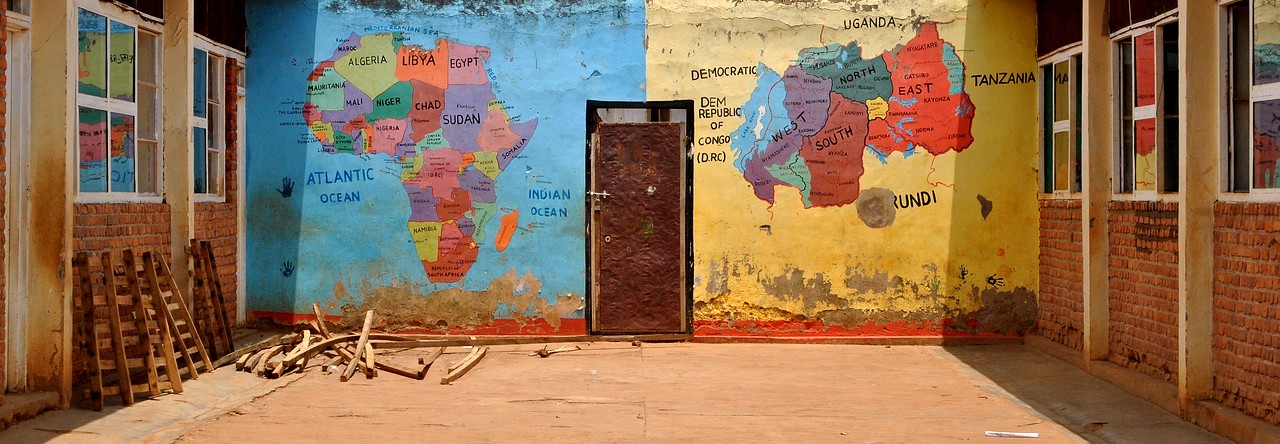— By Omolara from Nigeria
It was a cold night one morning in July. I had woken up really sick and frail. All I now remember was that my mother, a passionate and caring mum, was in tears as I carefully laid in her arms; at this time, I was only two. Days later, the most playful child in the neighborhood was now legally blind. I could no longer see, so they thought I was nothing. I could no longer play, so they thought I was nothing. I could no longer go to school, they were sure I was nothing. It’s no surprise however that I didn’t know my father’s family until now.
A time soon came when I began school again. Even though it was later than usual, it was better than never. Being aware of the societal stereotypes that surrounded my life, I drew my strength from all of them. With all of the insults, discrimination, stigmatization, and isolation the world had to offer, I was not discouraged but instead these were all the source of my inspiration. I made up my mind to prove something out of nothing, after all, they already thought I was nothing. I soon took anything and everything that society had to offer, and made it into something.
First, I graduated as the best student in my class after my primary school education. Then, I made very good grades in my West African school certificate examination. Soon, I was in the tertiary institution, a polytechnic for that matter, when the biggest challenges appeared.
I was a student of Mass Communication in a class of about six hundred students and the only visually impaired student in the entire polytechnic. This was going to be difficult; but remember, I had a drive, a plan, and an objective to make something out of nothing. So, I gave it my all. I was sick many times because of malnutrition, and unable to pay school fees at times. But, at no time did I allow them to stop me.
I remember one day, I had gone to the social welfare unit in a church to seek for help to pay my school fees a second time. They had helped me the previous academic session and so I thought to go back to them again to see if they could help since I had nowhere else to go. My mother at this time had no job nor business. It was really sad that she could not pay for my fees. However, her moral support towards me was worth much more.
On this day, I had waited until dark because there was a crowd and we all had to take turns to see the panel of decision makers. They decide who they wanted to help. They even humiliated you before helping you. “What’s the point,” I began to say to myself as I sat down waiting for my turn. I felt really sorry for the way some people were being treated by this panel. My heart was beating really fast as I began to imagine the worse that could happen to me. Soon, it was my turn.
As I sat in front of them, presenting my case and trying to urge them to help me, I was suddenly shouted at and walked out of the room. I was told never to come again and to go seek help elsewhere. This was the most humiliated I would ever feel. I cried, but never blamed anyone for their hostility towards me. After all, the world was hostile to people like me. Society never gives us a chance. But, in my struggles, I learned never to blame anyone; remember, I still had a plan to become something.
After two years of hard work with severe hunger and hardships, I finally got what I wanted. I graduated as one of the best five in a class of about six hundred. This was definitely something out of nothing. At last, I was something. At this point, I knew I could do more. My journey had just begun. I became the pride of many and the pride of my community.
I soon got admitted into the university for my degree in English. I developed my passion of mentoring people with disabilities. I needed to tell my story to change history. My determination would never give up because I knew I was going places.
Soon, I started to attend conferences centered around persons with disabilities both locally and internationally. I began to make headlines in my family and community. I soon emerged as one of the one thousand Africans selected to participate in the Mandela Washington fellowship under the recognition of former president Barak Obama in 2016.
Today, I’m happy to be a part of someone’s story. I run an NGO that deals with issues surrounding persons with disabilities. I am a mentor and a coach to people with disabilities. I’m very happy today because I am something.

 — By Samantha from Zimbabwe
— By Samantha from Zimbabwe